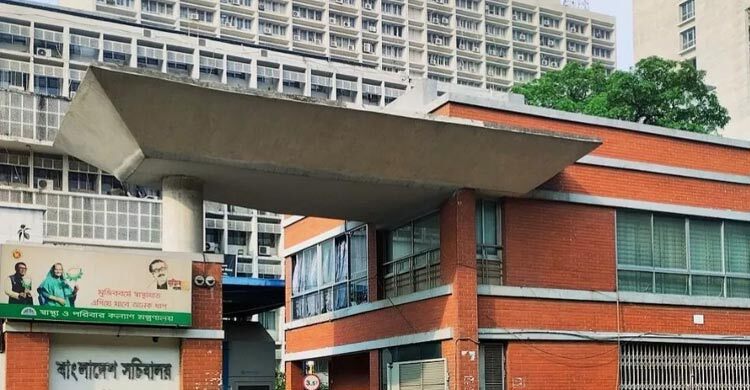Bureaucracy pushes back against proposed reforms

The draft proposal by the Public Administration Reform Commission has sparked significant controversy, especially among influential administrative cadre officials.
Protests have erupted, with officials demanding the withdrawal of the draft proposal, which they argue undermines their roles and promotes structural inequality.
Proposed changes and backlash
At a press briefing on Tuesday (December 17), Abdul Muyeed Chowdhury, head of the Public Administration Reform Commission, revealed key recommendations, including:
Requiring Civil Service officials to pass an examination for promotions to Deputy Secretary and Joint Secretary levels.
Revising the promotion quota for Deputy Secretary positions, with a 50:50 distribution between administrative cadre officials and other cadre officials, as opposed to the current 75:25 ratio favoring administrative cadre officials.
Recommending that the health and education cadres be separated from the cadre service, similar to the Judicial Service Commission.
Consolidating other cadres into five broader groups.
These proposals have triggered widespread dissent across administrative, health, and education cadres.
Reactions from administration cadre officials
The Bangladesh Administrative Service Association (BASA), representing administrative cadre officials, expressed strong opposition, criticizing the lack of consultation and inadequate research underpinning the proposals.
In a statement issued Wednesday (December 19), BASA argued that: The draft recommendation disregards input from officials aspiring for promotions and lacks proper analysis.
The current system of 100% promotions for administrative cadre officials is essential for state welfare.
Deputy Commissioners (DCs) also voiced their protest, submitting a letter to the Cabinet Secretary and the Senior Secretary of the Ministry of Public Administration. The letter called the proposal “unrealistic” and accused the commission of undermining state policy-making.
Protests from education cadre officials
The BCS General Education Association, representing 16,000 members, rejected the draft recommendation to exclude education from cadre service.
In a protest letter, the association said: The proposal conflicts with the reform commission's goal of eliminating discrimination and fostering a people-friendly administration.
No discussions were held with elected representatives of the education cadre, rendering the proposal unilateral and unjust.
The association suggested the recommendation might destabilize the education sector and warned of the potential impact on ongoing education reform programs.
Health cadre’s response
The Health Cadre Association, with 35,000 members, also rejected the draft proposal, terming it “one-sided” and contradictory to the interim government’s merit-based policies.
In a joint statement, the association argued that appointing inexperienced officials to health policy-making roles would compromise the quality of the health sector. They insisted on the need for health cadre officials to lead the sector, ensuring science-based and modern health policies.
Formation and purpose of the reform commission
The Public Administration Reform Commission, established on October 3 by the Cabinet Division, was tasked with creating a people-oriented, accountable, efficient, and impartial public administration system. Led by Abdul Mueed Chowdhury, the commission comprises eight members and is expected to submit its report within 90 days.
However, the commission’s recommendations have ignited anger and resistance across various sectors, threatening to derail its mission for effective reform.
As protests grow louder, the government faces mounting pressure to address the concerns of key stakeholders and reevaluate the contentious draft proposal.

